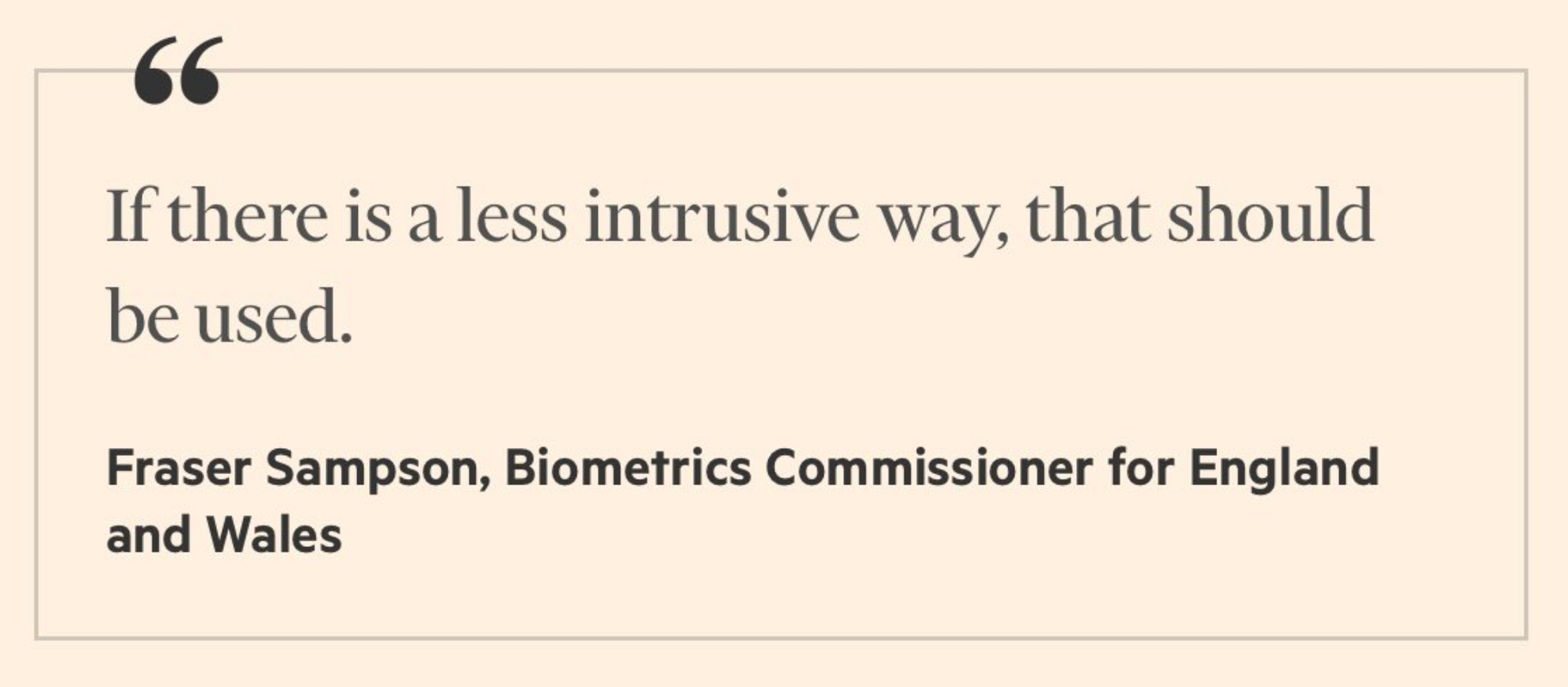Facial recognition in schools
Blog / October 17, 2021
The Financial Times reports today, “Facial recognition computers have found an unlikely new niche: scanning the faces of thousands of British pupils in school canteens.”
We believe that facial recognition should not be used in schools.
As there are less invasive means available to take payments than processing sensitive biometric data; such as using contactless card payments, a PIN, or cash, the use of facial recognition or fingerprints is an excessive interference with children’s right to protection of their privacy and not “necessary in a democratic society” for the purposes of the Data Protection Act. It is thus likely unlawful under the UK GDPR, in line with the 2019 court and data protection authority (DPA) decisions in France and Sweden.
Sweden issued its first fine under GDPR as a result of its case. The French data protection authority, the CNIL, ordered high schools in Nice and Marseille to end their facial-recognition programs.
We expect a similar response from the UK ICO.
These decisions against using facial recognition in schools were acknowledged by the UK Information Commissioner in their June 2021 report, page 22, ‘The use of live facial recognition technology in public places.’
“In 2019, data protection authorities (DPAs) in France and Sweden took action against controllers using facial recognition in schools. The Swedish regulator issued a monetary penalty under the GDPR to a local authority which instructed schools to use facial recognition to track pupil attendance. The school had sought to base the processing on consent. However, the Swedish DPA considered that consent was not a valid legal basis given the imbalance between the data subject and the controller. (our emphasis)
“The French regulator raised concerns about a facial recognition trial commissioned by the Provence-Alpes-Côte d’Azur Regional Council, and which took place in two schools to control access by pupils and visitors. The regulator’s concerns were subsequently supported by a regional court in 2020. It concluded that free and informed consent of students had not been obtained and the controller had failed to demonstrate that its objectives could not have been achieved by other, less intrusive means.” (our emphasis)
There can be no freely given consent when the power imbalance with the authority is such that it makes it hard to refuse. Furthermore, the notifications we have seen sent to parents have been worded so as to make acceptance seem compulsory. And the suggestion is similarly flawed that children themselves over the age of 12 could give valid consent, as suggested in North Ayrshire communications with the company.
High uptake can be mistakenly seen as a sign of approval. But often schools use a failed ‘consent’ process in which parents are told to sign up. “If you wish to access meals/snacks (free or paying) or make any purchases from the school eg trips, tie etc, you must register for an iPayimpact account.”
From a child rights’ perspective the use of any biometric data, fingerprints or facial recognition, is an unnecessary and disproportionate interference with the students’ right to privacy, enshrined in Article 16 of the UN Convention on the Rights of the Child (UNCRC) and Article 8 of the European Convention on Human Rights (ECHR). Schools should end the use of high value biometric data for such trivial purposes.
In work led by Big Brother Watch (BBW), and after research by our co-Director Pippa King who founded Biometrics-in-Schools over fifteen years ago, defenddigitalme has joined BBW to write to schools using live facial recognition. We ask them to stop using facial recognition systems, and to instead offer less intrusive means for students to purchase food and make other payments in educational settings.
Society must challenge the idea that it is appropriate or safe for children to normalise the expectation that they must offer their bodies for use in trivial transactions, particularly in situations that are non-consensual, under peer pressure or imbalances of power.
Updated on November 1, 2021
In Ministerial Questions on October 28th the MSP, for North East Fife Willie Rennie, asked what the Scottish government position is on facial recognition in schools. The First Minister, Nicola Sturgeon, responded that she felt the technologies do not appear to be proportionate or necessary.
In Ministerial Questions @willie_rennie asked what the Scottish govt. position is on #FacialRecognition and #ChildRights in #schools saying, it should never have got this far.
Sturgeon said the tech don’t appear to be proportionate or necessary.
Time to #BanBiometricsInSchools pic.twitter.com/Sfsdg7FdaC
— defenddigitalme (@defenddigitalme) October 29, 2021
